Idea by
Niklas Fanelsa, Elsa Lherm Delorme, Eva Eckert
Atelier Fanelsa
Call for ideas 2019
Weiterbauen
Weiterbauen
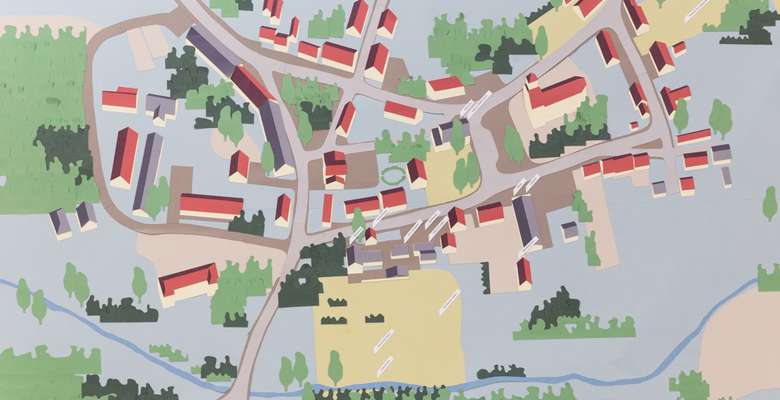
- Systemic changes
The project ‚Weiterbauen’ investigates the emergence of new places of rural commoning. They are laboratories for the development of innovative practices of living, making and building. The proposed ecology connects the different initiatives and places. The investigations consists of pattern, structures, transformations, and social networks proposing a possible and desirable future.
In recent years the interest and demand for new forms of communal living has increased. Simultaneously city inhabitants are being tempted to a life in the countryside. When they decide to move to villages and rural areas, knowledge and habits from the city merge with the practical knowledge and social activities of the rural. In this context the pioneers develop places of commoning which incorporates an awareness of architecture and the built environment.
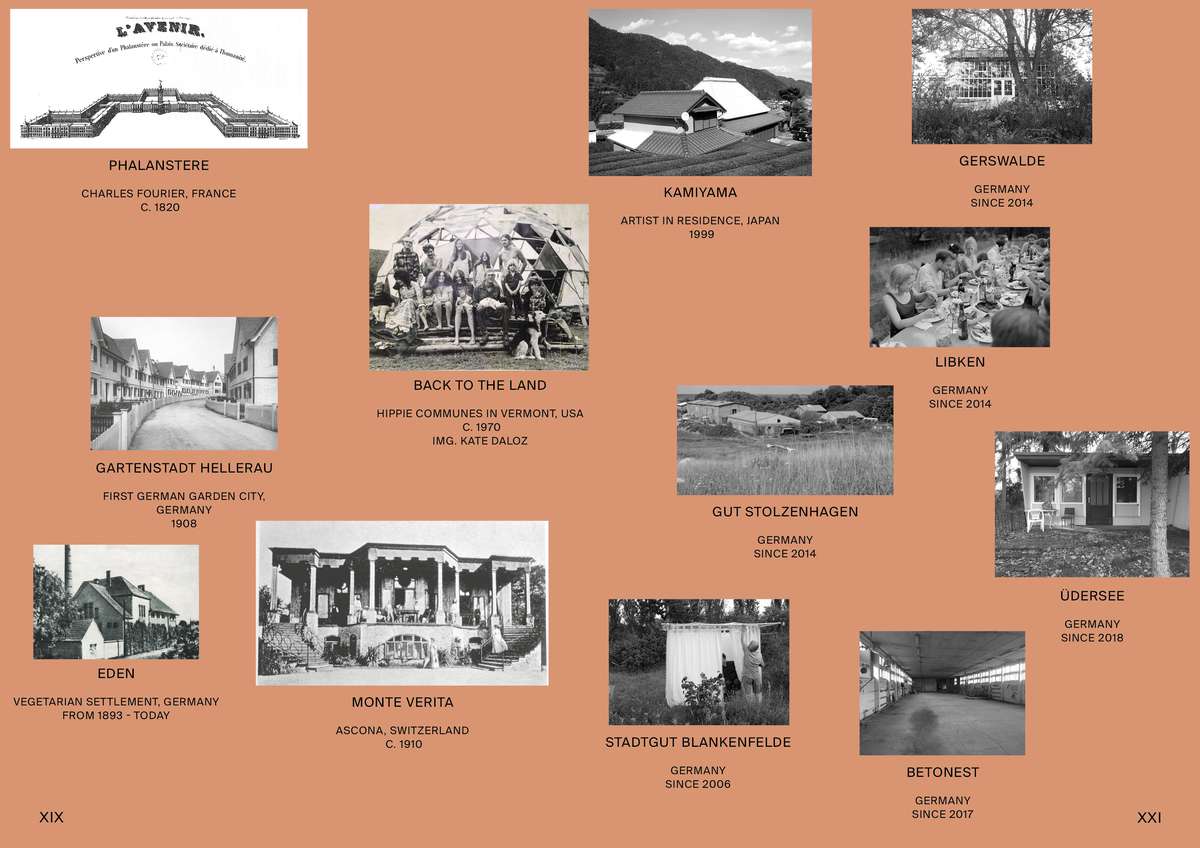
A short historic timeline of communal rural movements and places for alternative modes of living, production and collaborative architectural practice.
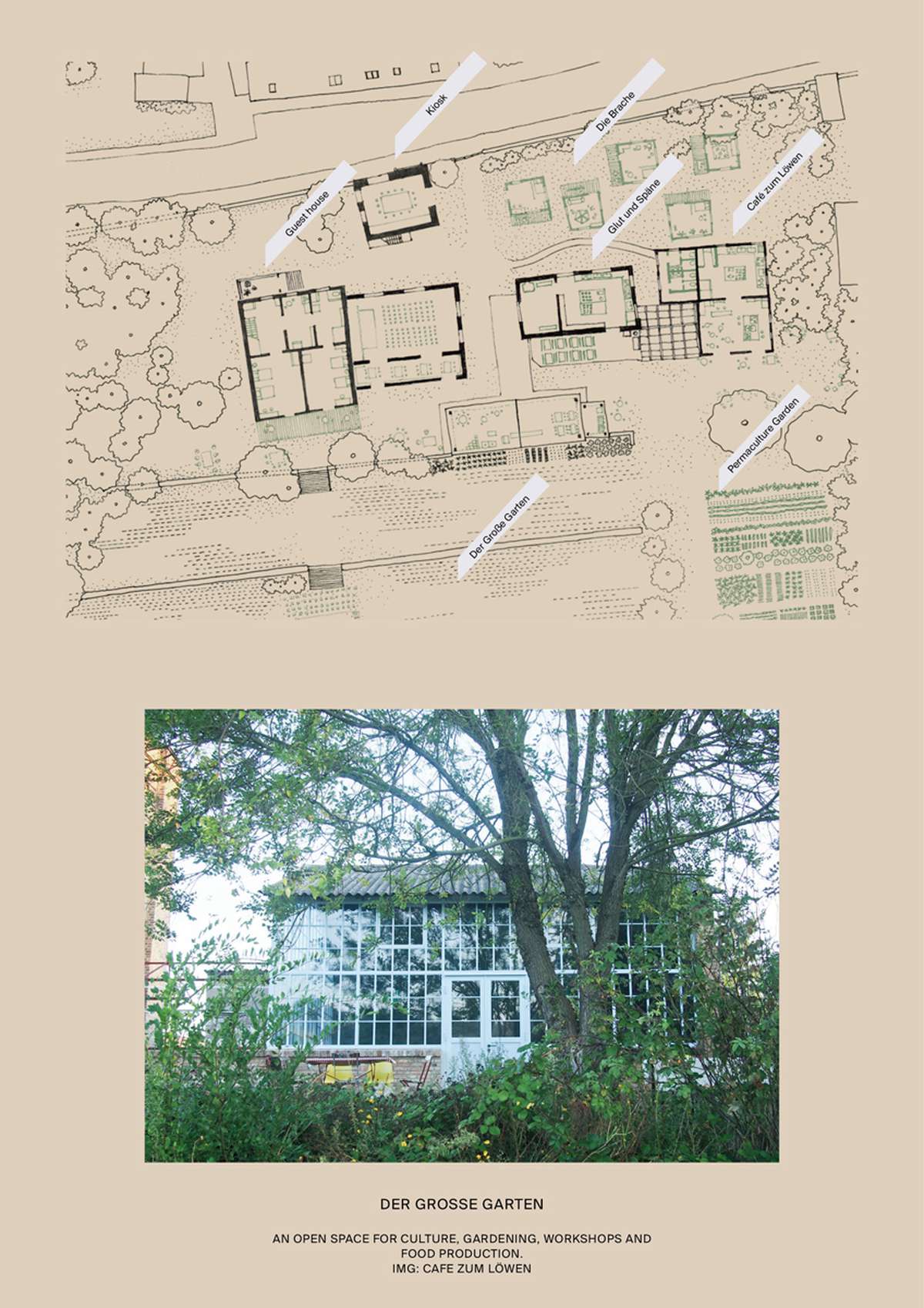
Gerswalde, a small village north of Berlin is a new spot for cultural activities. Spread in the village is a gallery, a printing workshop, and a communal housing project. The center is the ‚Große Garten’ – a former plant nursery converted into a permaculture farm, a Japanese café, a fish snack, a guest house. With its existing qualities and local commitment, Gerswalde provides a network for developing of new initiatives and a cultural platform for the surrounding rural area.
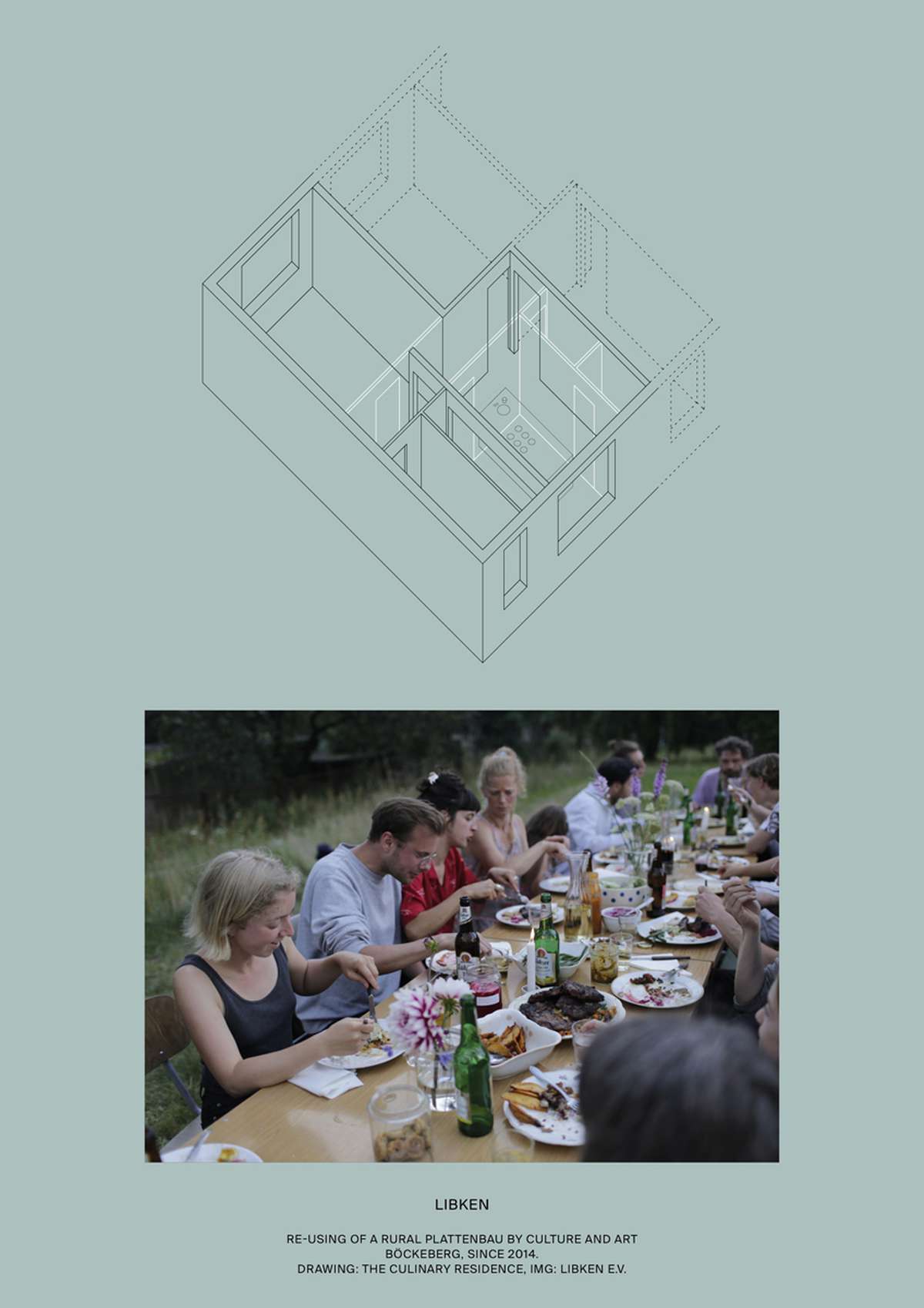
Libken is a platform promoting cultural diversity in the Brandenburg region by bringing together people from different contexts, disciplines and backgrounds. The initiative hosts exhibitions, workshops, residence programmes, festivals, symposia, concerts, film screenings, actions, discussions, and communal meals. Part of their engagement is the re-use of a rural „Plattenbau“ a pre-fab mass housing complex.
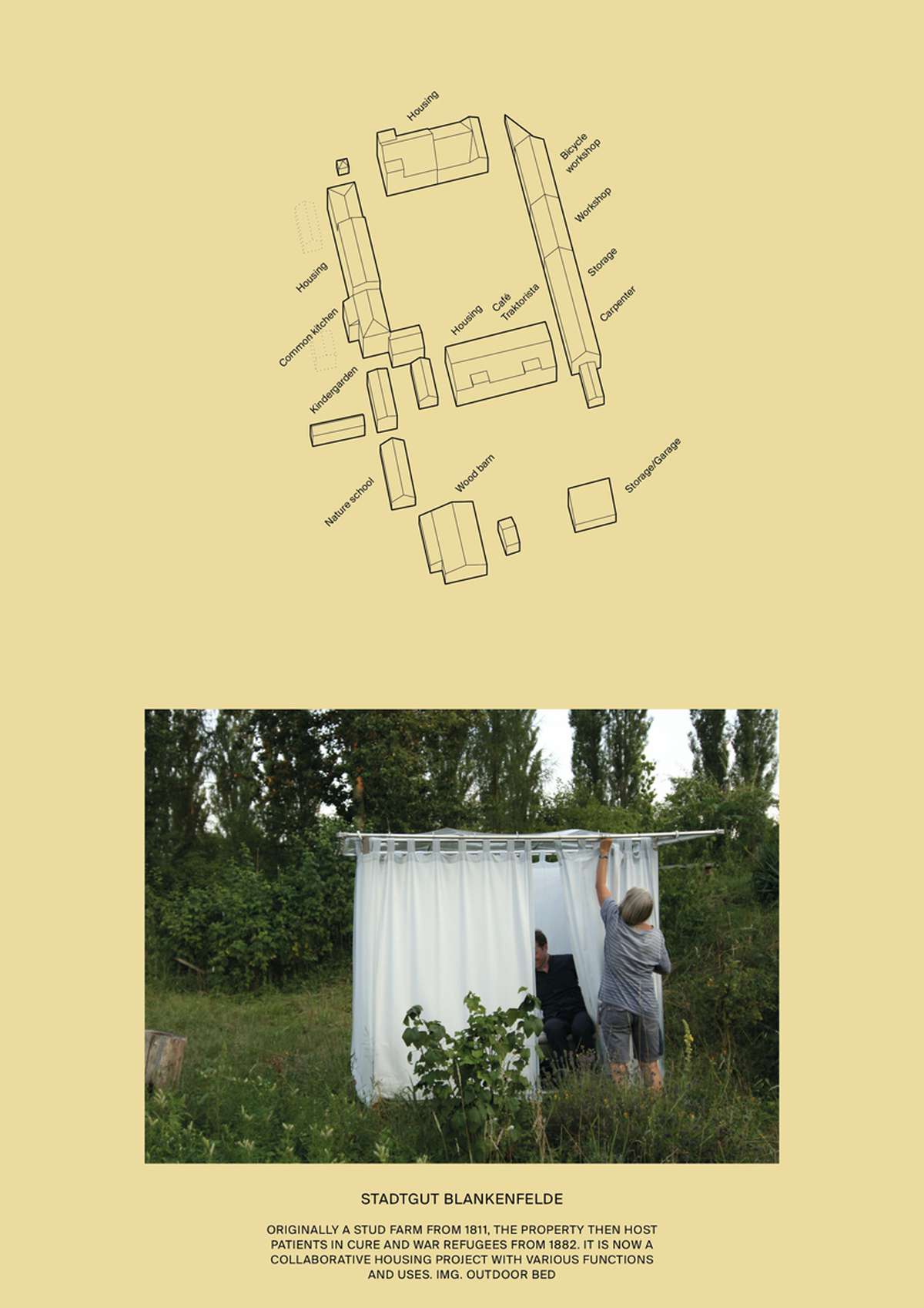
The StadtGut Blankenfelde has been founded as an alternative form of communal living at the periphery of Berlin. The group consists of a wide variety of people, which live, work, think and build together. With time the numerous existing buildings were transformed: the main brick buildings into apartments, the barns became workshops, a former hospital is a kindergarten an primary school.
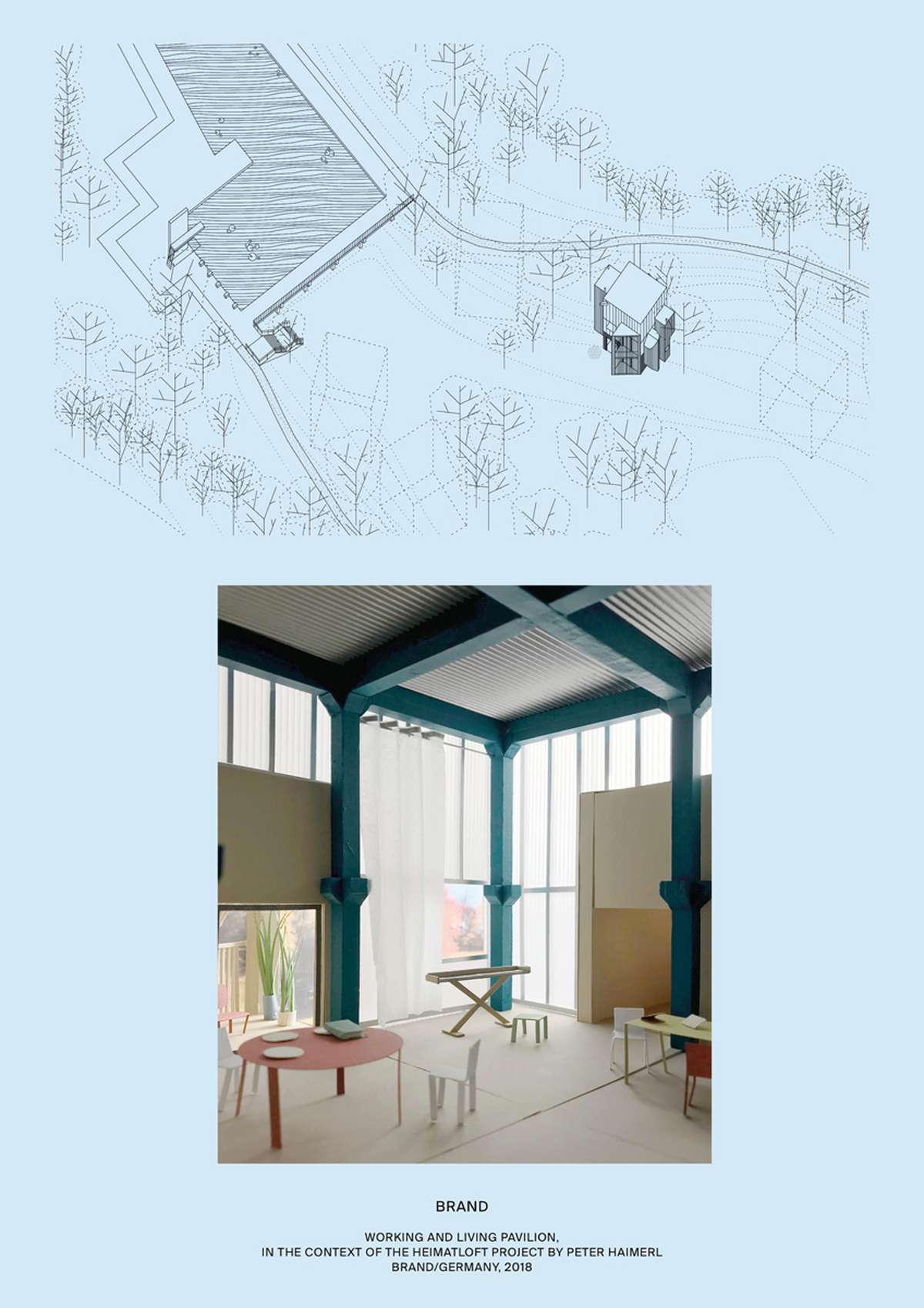
In Brand a new centre for temporary living, working, and creating is to be built in an abandoned open-air swimming pool. A series of eight pavilions are spread in the park to host groups and individuals. The building is wrapped in polycarbonate panels. Wooden alcoves emerge from the facade, differing in shape and space for different functions. The robust structure of precast concrete elements offers opportunities for various appropriations in the inside.
Weiterbauen
Weiterbauen

- Systemic changes
The project ‚Weiterbauen’ investigates the emergence of new places of rural commoning. They are laboratories for the development of innovative practices of living, making and building. The proposed ecology connects the different initiatives and places. The investigations consists of pattern, structures, transformations, and social networks proposing a possible and desirable future.
In recent years the interest and demand for new forms of communal living has increased. Simultaneously city inhabitants are being tempted to a life in the countryside. When they decide to move to villages and rural areas, knowledge and habits from the city merge with the practical knowledge and social activities of the rural. In this context the pioneers develop places of commoning which incorporates an awareness of architecture and the built environment.
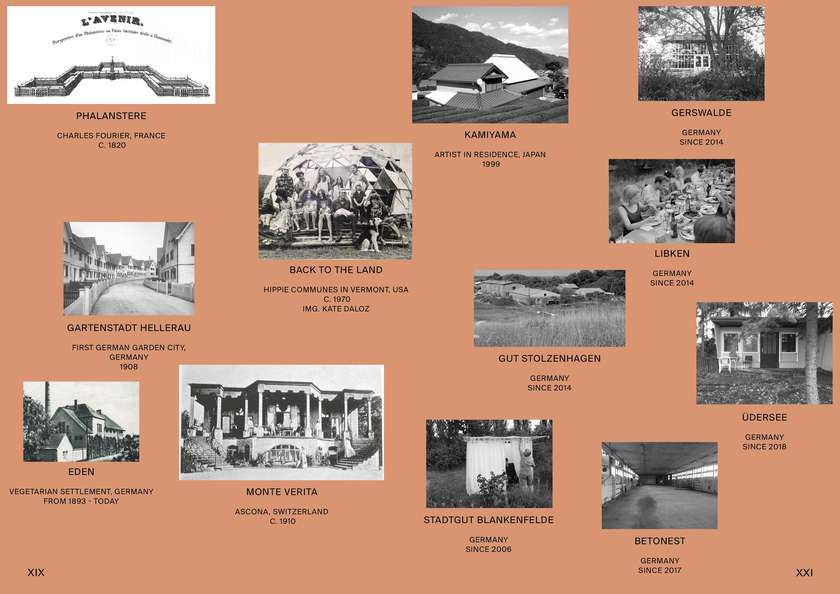
A short historic timeline of communal rural movements and places for alternative modes of living, production and collaborative architectural practice.
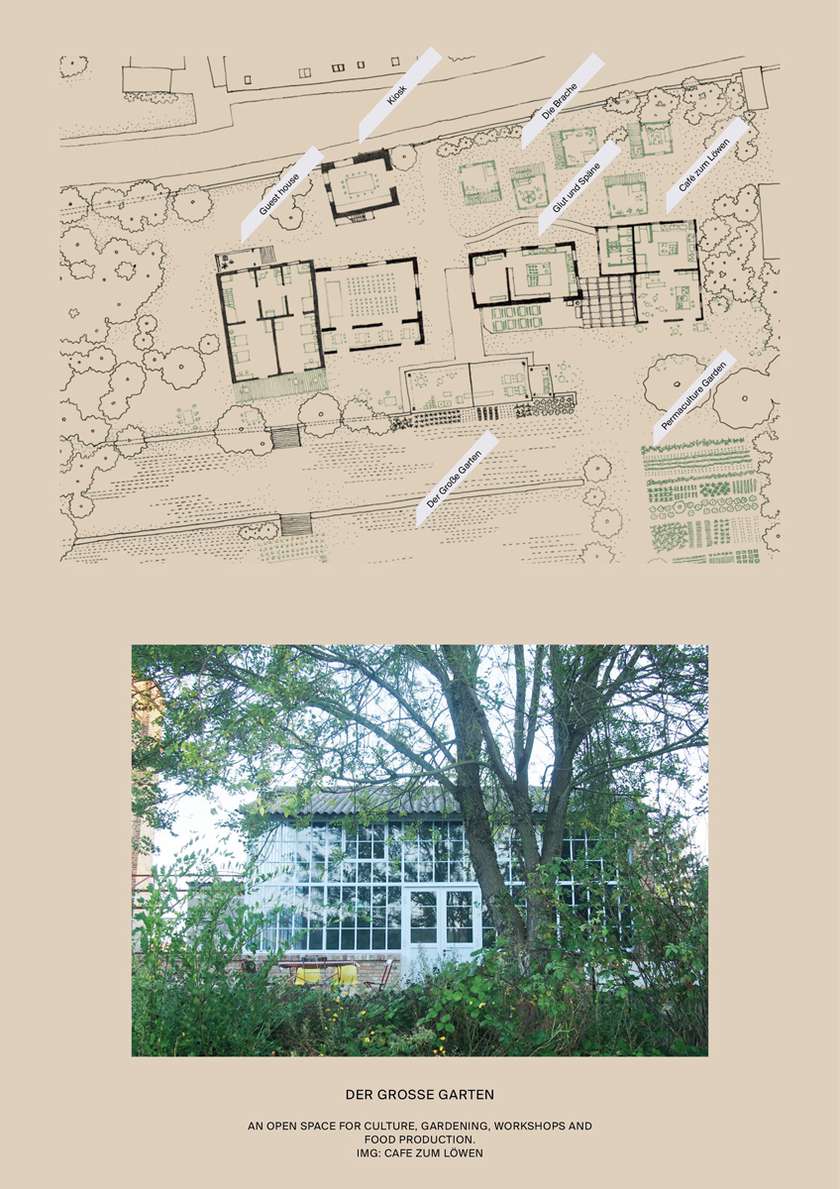
Gerswalde, a small village north of Berlin is a new spot for cultural activities. Spread in the village is a gallery, a printing workshop, and a communal housing project. The center is the ‚Große Garten’ – a former plant nursery converted into a permaculture farm, a Japanese café, a fish snack, a guest house. With its existing qualities and local commitment, Gerswalde provides a network for developing of new initiatives and a cultural platform for the surrounding rural area.
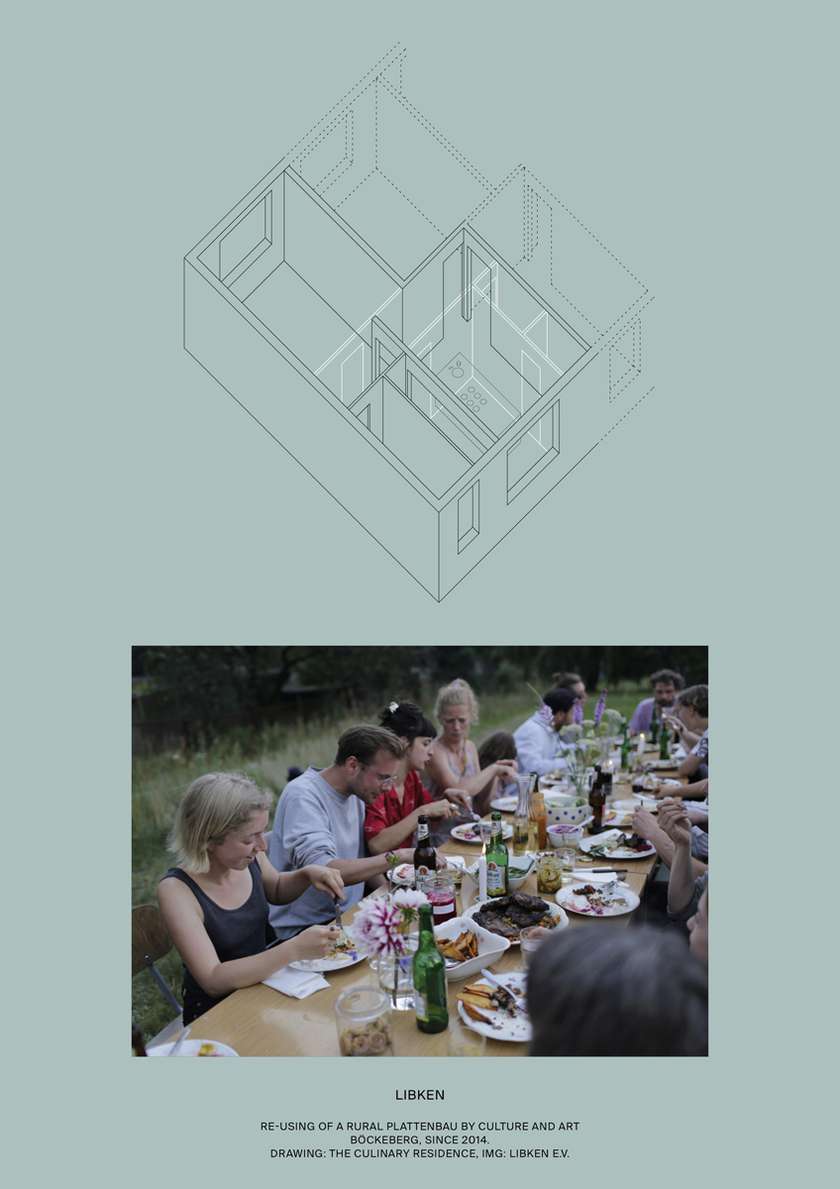
Libken is a platform promoting cultural diversity in the Brandenburg region by bringing together people from different contexts, disciplines and backgrounds. The initiative hosts exhibitions, workshops, residence programmes, festivals, symposia, concerts, film screenings, actions, discussions, and communal meals. Part of their engagement is the re-use of a rural „Plattenbau“ a pre-fab mass housing complex.
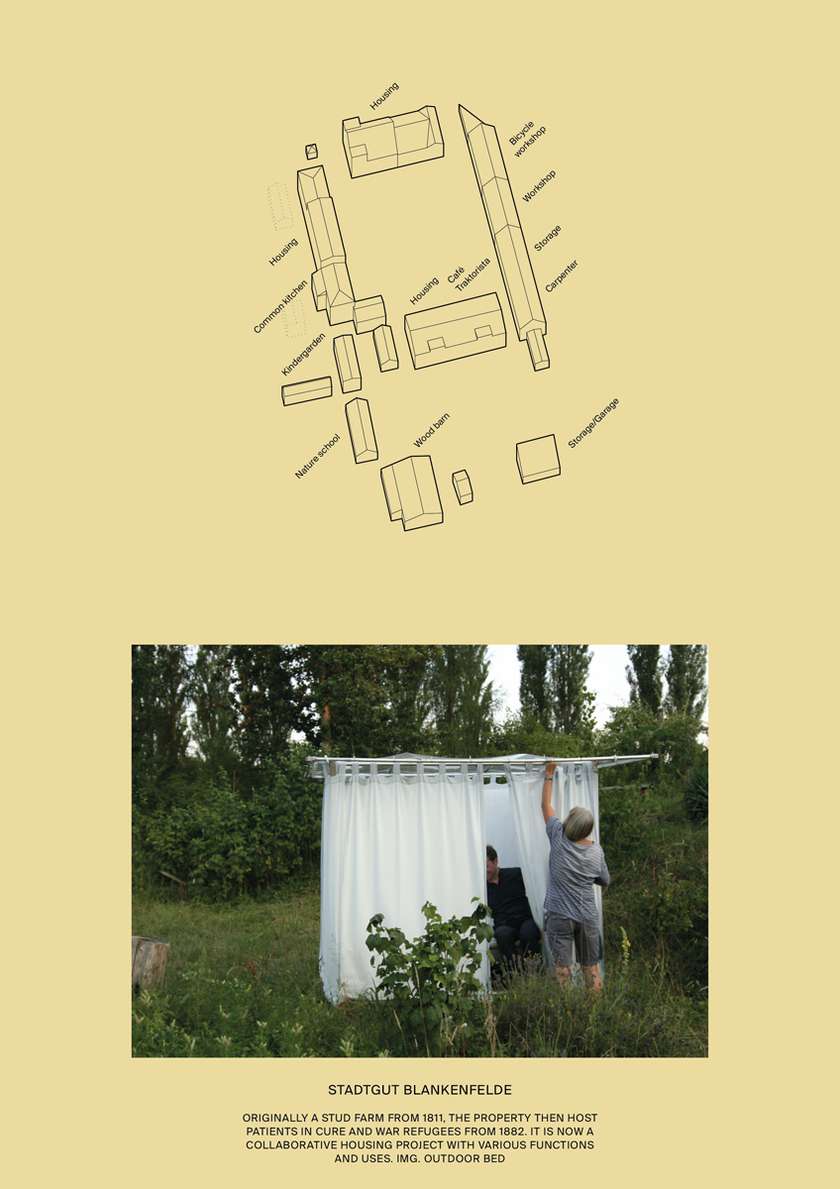
The StadtGut Blankenfelde has been founded as an alternative form of communal living at the periphery of Berlin. The group consists of a wide variety of people, which live, work, think and build together. With time the numerous existing buildings were transformed: the main brick buildings into apartments, the barns became workshops, a former hospital is a kindergarten an primary school.
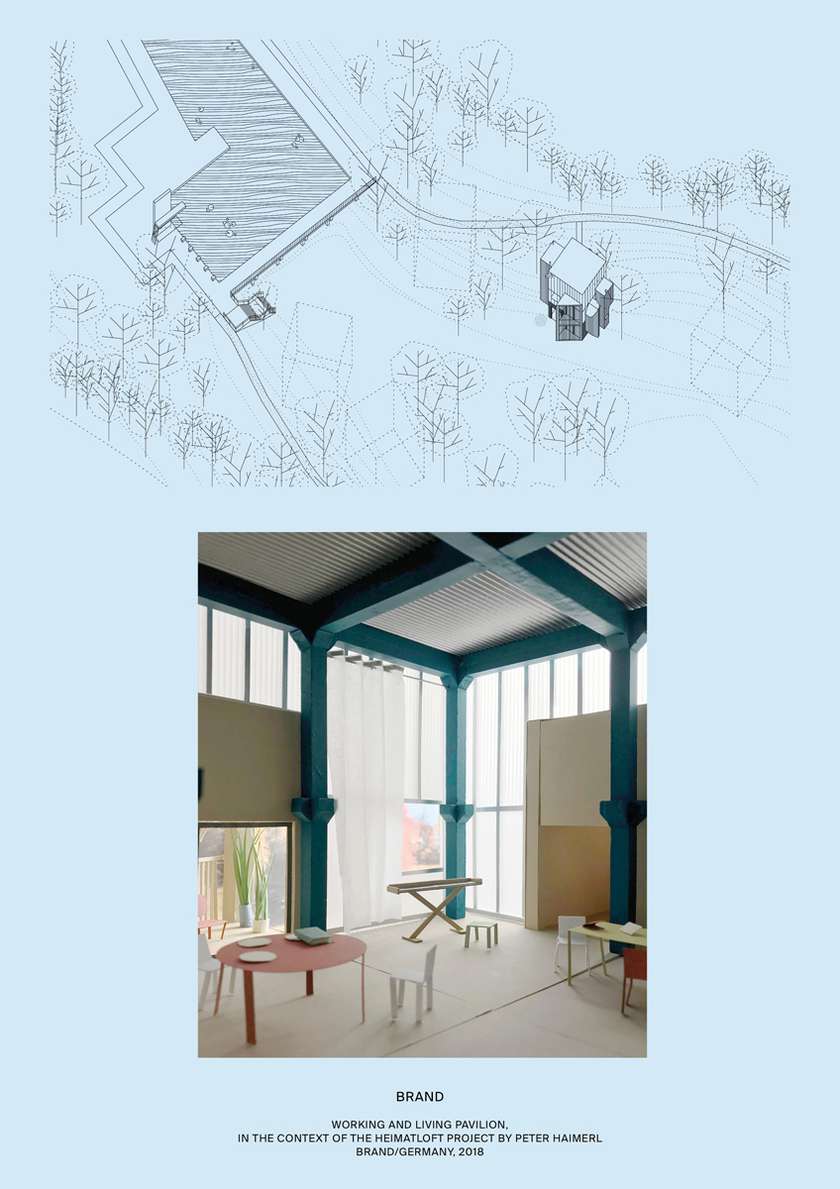
In Brand a new centre for temporary living, working, and creating is to be built in an abandoned open-air swimming pool. A series of eight pavilions are spread in the park to host groups and individuals. The building is wrapped in polycarbonate panels. Wooden alcoves emerge from the facade, differing in shape and space for different functions. The robust structure of precast concrete elements offers opportunities for various appropriations in the inside.